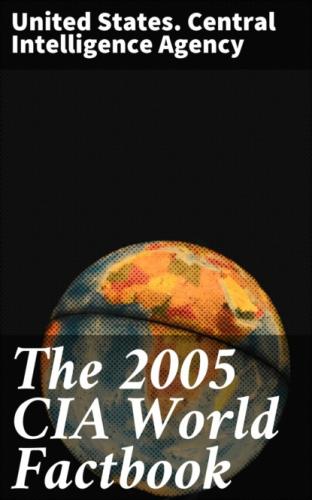manufactures, coffee, oils, cocoa, mangoes
Exports - partners:
US 81.2%, Dominican Republic 7.3%, Canada 4.1% (2004)
Imports:
$1.085 billion f.o.b. (2004 est.)
Imports - commodities:
food, manufactured goods, machinery and transport equipment, fuels,
raw materials
Imports - partners:
US 34.8%, Netherlands Antilles 18%, Malaysia 5.1%, Colombia 4.7%
(2004)
Reserves of foreign exchange and gold:
$80.64 million (2004 est.)
Debt - external:
$1.2 billion (2004 est.)
Economic aid - recipient:
$150 million (FY04 est.)
Currency (code):
gourde (HTG)
Currency code:
HTG
Exchange rates:
gourdes per US dollar - 38.352 (2004), 42.367 (2003), 29.251
(2002), 24.429 (2001), 21.171 (2000)
Fiscal year:
1 October - 30 September
Communications Haiti
Telephones - main lines in use:
130,000 (2002)
Telephones - mobile cellular:
140,000 (2002)
Telephone system:
general assessment: domestic facilities barely adequate;
international facilities slightly better
domestic: coaxial cable and microwave radio relay trunk service
international: country code - 509; satellite earth station - 1
Intelsat (Atlantic Ocean)
Radio broadcast stations:
AM 41, FM 26, shortwave 0 (1999)
Radios:
415,000 (1997)
Television broadcast stations:
2 (plus a cable TV service) (1997)
Televisions:
38,000 (1997)
Internet country code:
.ht
Internet hosts:
NA
Internet Service Providers (ISPs):
3 (2000)
Internet users:
80,000 (2002)
Transportation Haiti
Highways: total: 4,160 km paved: 1,011 km unpaved: 3,149 km (1999 est.)
Ports and harbors:
Cap-Haitien
Airports:
13 (2004 est.)
Airports - with paved runways:
total: 4
2,438 to 3,047 m: 1
914 to 1,523 m: 3 (2004 est.)
Airports - with unpaved runways:
total: 9
914 to 1,523 m: 4
under 914 m: 5 (2004 est.)
Military Haiti
Military branches:
the regular Haitian Armed Forces (FAdH) - Army, Navy, and Air Force
- have been demobilized but still exist on paper until or unless
they are constitutionally abolished
Military service age and obligation: 18 years of age for voluntary recruitment into the police force (2001)
Manpower available for military service:
males age 18–49: 1,626,491 (2005 est.)
Manpower fit for military service:
males age 18–49: 948,320 (2005 est.)
Manpower reaching military service age annually:
males: 98,554 (2005 est.)
Military expenditures - dollar figure:
$26 million (2003)
Military expenditures - percent of GDP:
0.9% (2003)
Transnational Issues Haiti
Disputes - international:
since 2004, about 8,000 peacekeepers from the UN Stabilization
Mission in Haiti (MINUSTAH) maintain civil order in Haiti; despite
efforts to control illegal migration, Haitians fleeing economic
privation and civil unrest continue to cross into Dominican Republic
and to sail to neighboring countries; Haiti claims US-administered
Navassa Island
Illicit drugs:
major Caribbean transshipment point for cocaine en route to the US
and Europe; substantial money-laundering activity; Colombian
narcotics traffickers favor Haiti for illicit financial
transactions; pervasive corruption
This page was last updated on 20 October, 2005
======================================================================
@Heard Island and McDonald Islands
Introduction Heard Island and McDonald Islands
Background:
These uninhabited, barren, sub-Antarctic islands were transferred
from the UK to Australia in 1947. Populated by large numbers of seal
and bird species, the islands have been designated a nature preserve.
Geography Heard Island and McDonald Islands
Location:
islands in the Indian Ocean, about two-thirds of the way from
Madagascar to Antarctica
Geographic coordinates:
53 06 S, 72 31 E
Map references:
Antarctic Region
Area:
total: 412 sq km
land: 412 sq km
water: 0 sq km
Area - comparative:
slightly more than two times the size of Washington, DC
Land boundaries:
0 km
Coastline:
101.9 km
Maritime claims: territorial sea: 12 nm exclusive fishing zone: 200 nm
Climate:
antarctic
Terrain:
Heard Island - 80% ice-covered, bleak and mountainous, dominated by
a large massif (Big Ben) and an active volcano (Mawson Peak);
McDonald Islands - small and rocky
Elevation extremes:
lowest point: Indian
